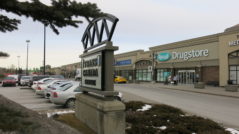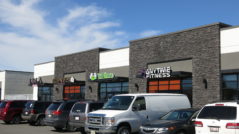There are many advantages to owning your own commercial property in Calgary. Putting your money into a property is a good investment especially if you intend to run your business for a number of years. Commercial property tends to appreciate in value despite the odd periods of economic slowdown. When you own your commercial property, you have the latitude to what you want with your property. You aren’t subject to the capricious nature and whims of a landlord, nor are you encumbered by the some of the complex issues that can arise in leases.
There are inherent risks involved also that you consider carefully before making such a huge investment of capital. This is especially true if you are just starting a business because you don’t know how well your business will fare. You also have to invest more of your time and energy in the infrastructure and expenses associated with managing your own property. Some of the issues that might preoccupy some of your energy revolve around heating and lighting costs and property taxes, just to name a few.
However, the rewards of owning a property will very likely outweigh the risks if you are well prepared. So, what are some of the key things you need to know when considering the purchase of commercial property in Calgary?
What Lenders Look for in Potential Borrowers
Lending institutions can be fickle about some of the standards they set for prospective buyers. These are some of the requirements you might encounter when applying for a commercial mortgage:
• Environmental Audit – Environment issues are sensitive these days. If you’re looking to buy a plot of land to build or an existing industrial facility, you should be prepared to have an environment assessment performed to ensure there aren’t any existing pollutants beforehand.
• Appraisal Required – If you are buying an existing building, you will have the value appraised by a qualified commercial property appraiser.
• Investment Limit – Lenders may have a maximum set percentage where they will only finance a portion such as 75% of the property, so will be responsible for a fairly hefty down payment to satisfy this requirement.
• Sole Tenant Requirement – If the property is to be occupied by a single tenant, the lender will want more information of the overall financial strength of the tenant.
• Debt Repayment – You will also be required to show that have the ability to repay the loan for the commercial mortgage or debt-repayment ability which is usually governed by a formula the lender uses.
Documentation Required by Commercial Property Lenders
Some of the documentation you will need prior to applying for a commercial property loan may consist of the following:
• The commercial property appraisal.
• An expense and income statement for the commercial property which will demonstrate the potential for a steady stream of income from the property.
• The financial statement of all the stakeholders who will be acting as owners of the property.
• Any financial statements that pertain to the entity (your company/companies) that are engaged in the purchase of the commercial property.
• Any blueprints or plans to show how the property will be used by the owners of the property.
• Detailed profiles of all the members of your management team.
Photo by Philip Taylor












